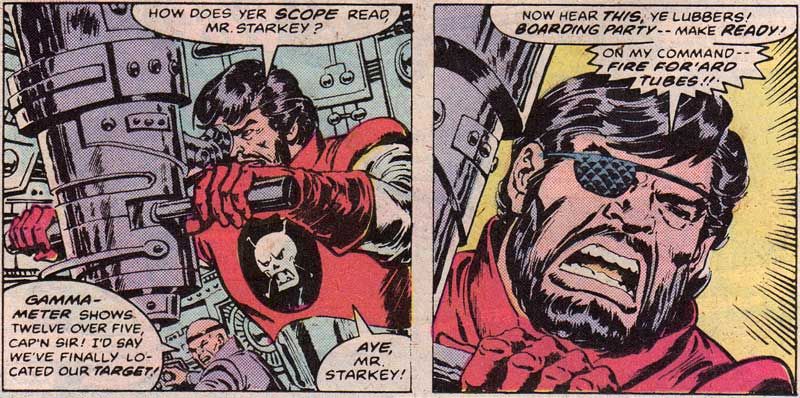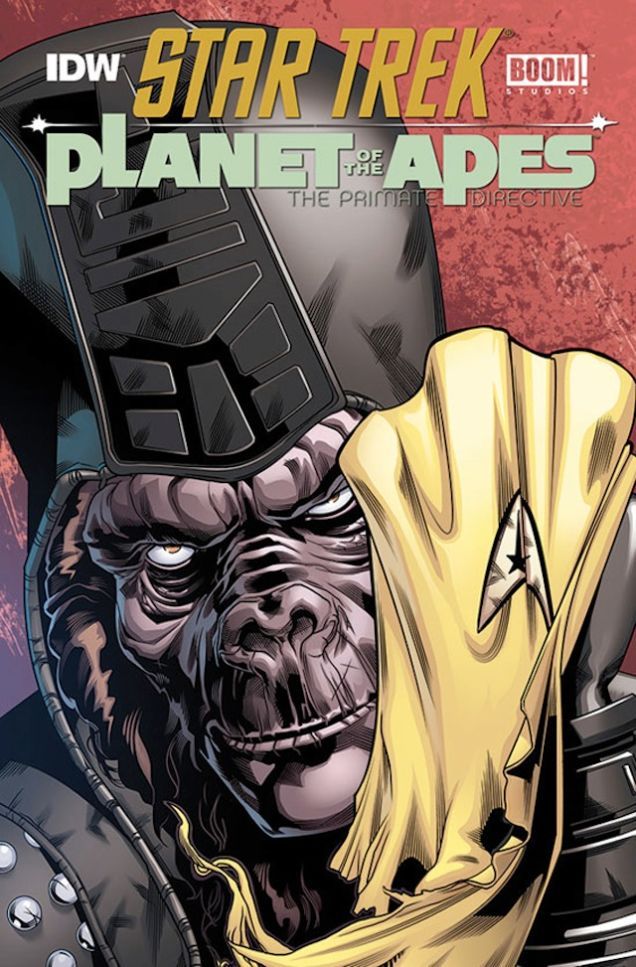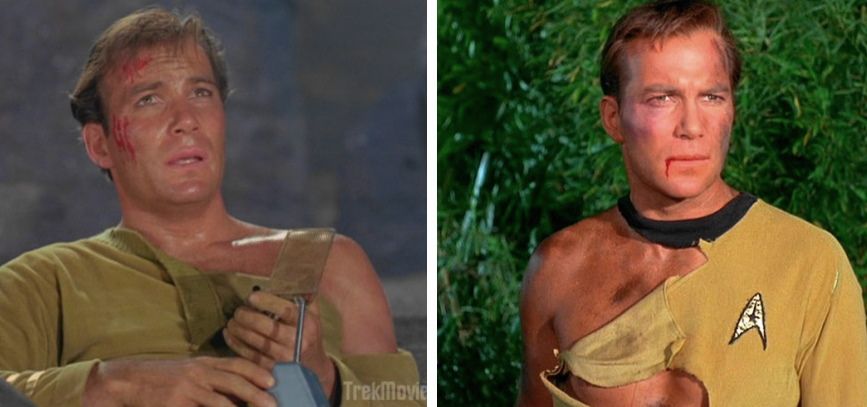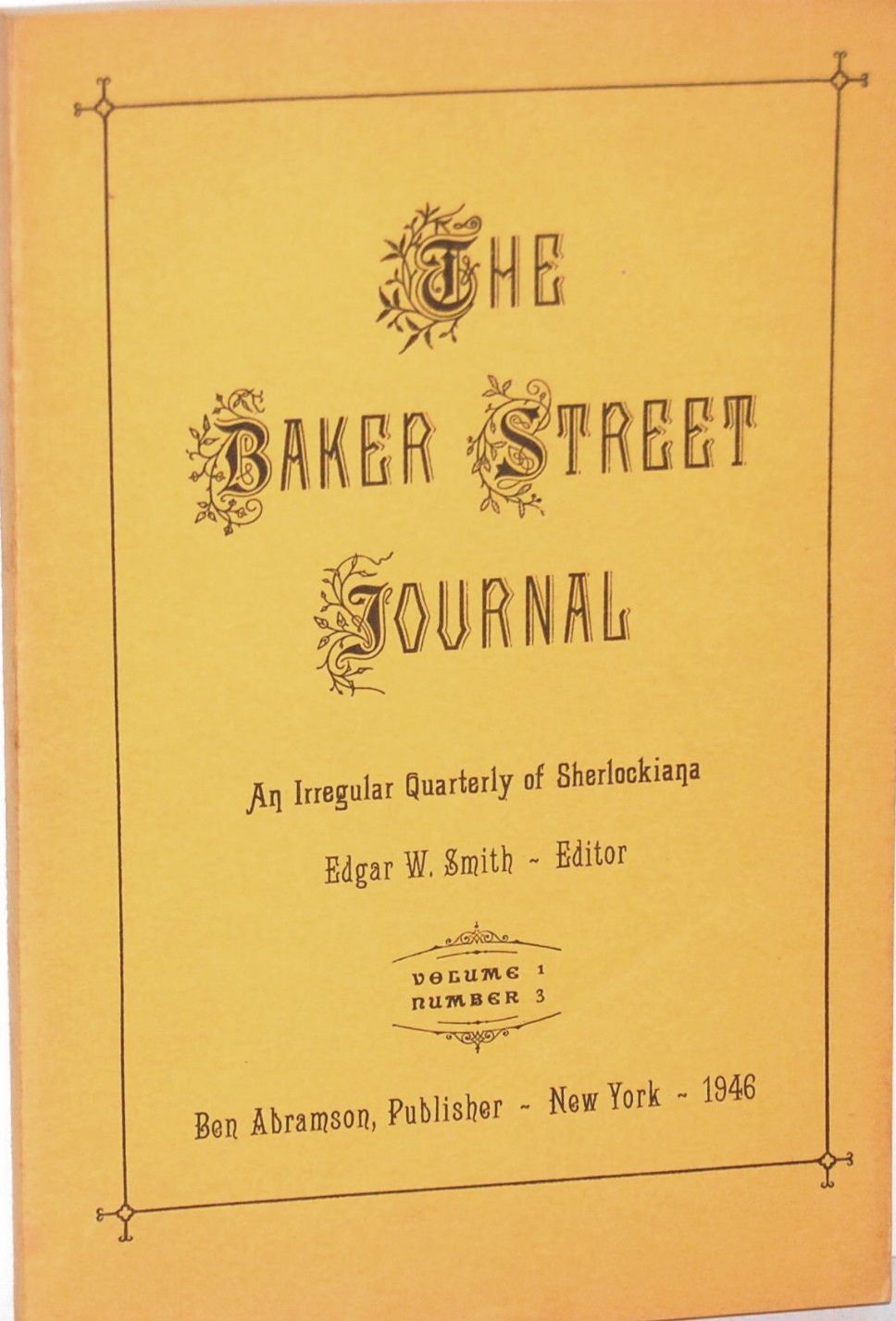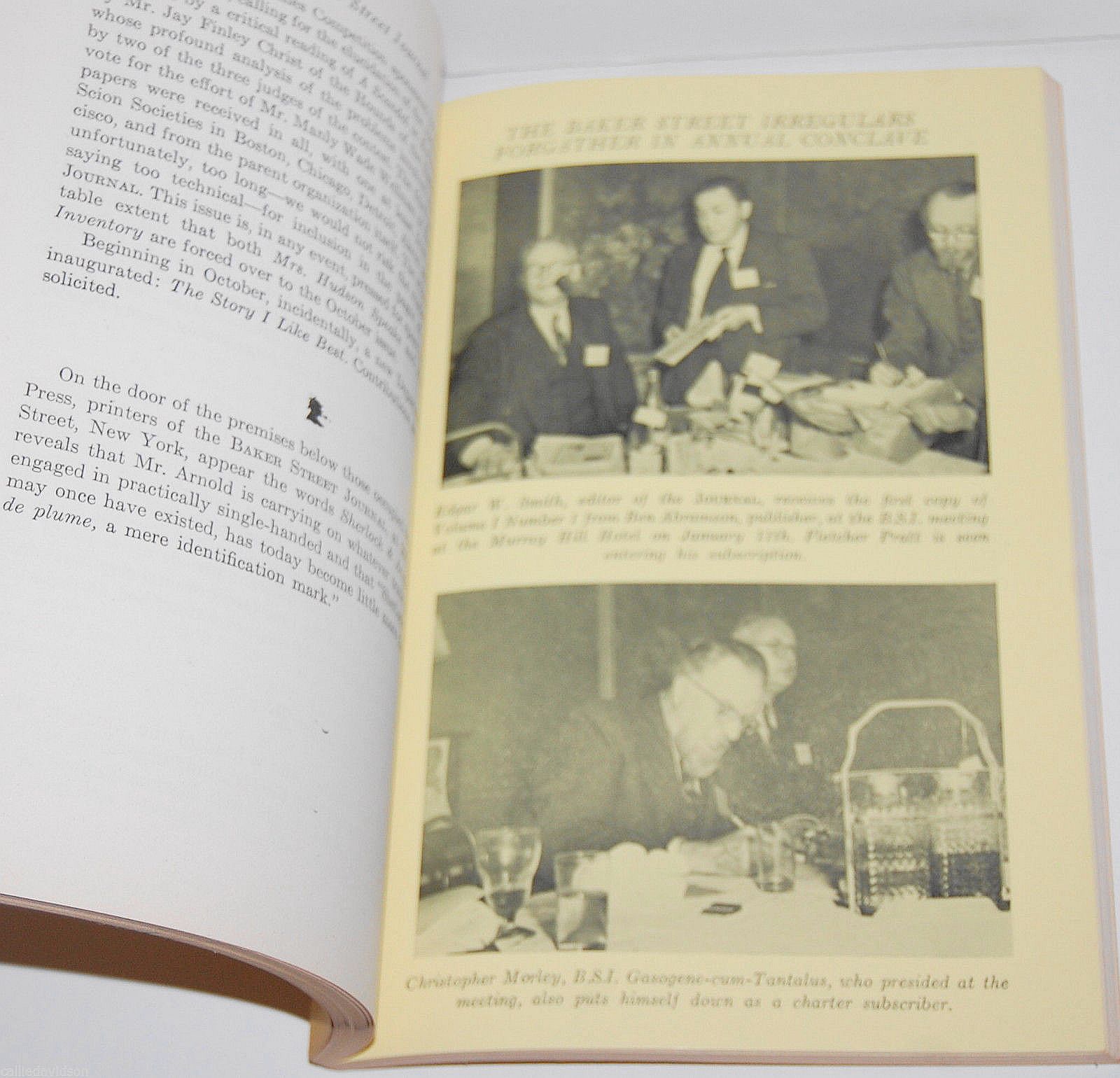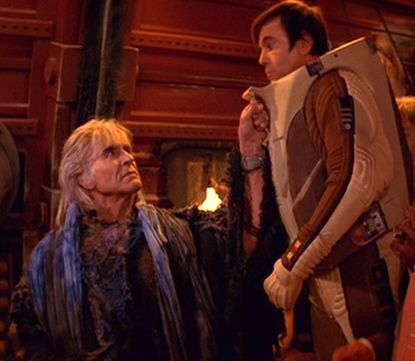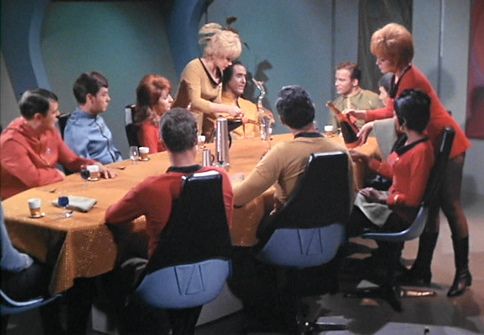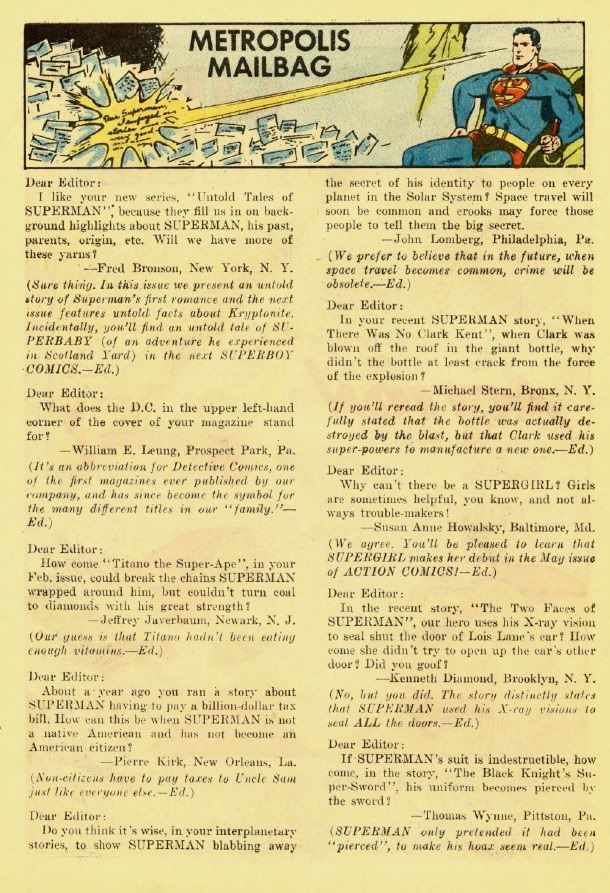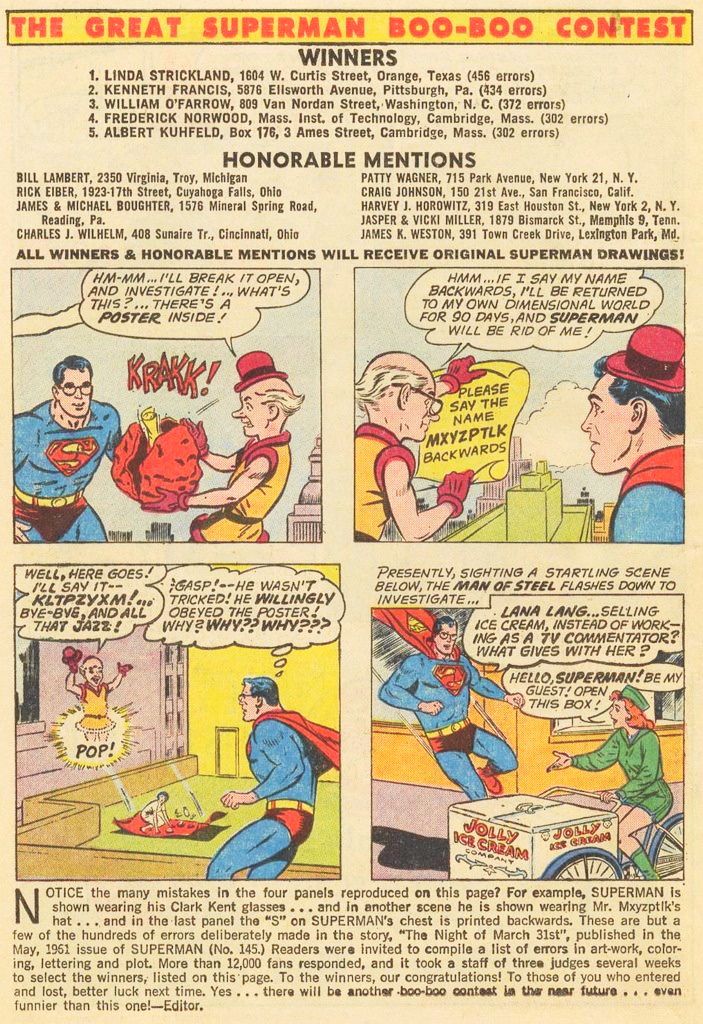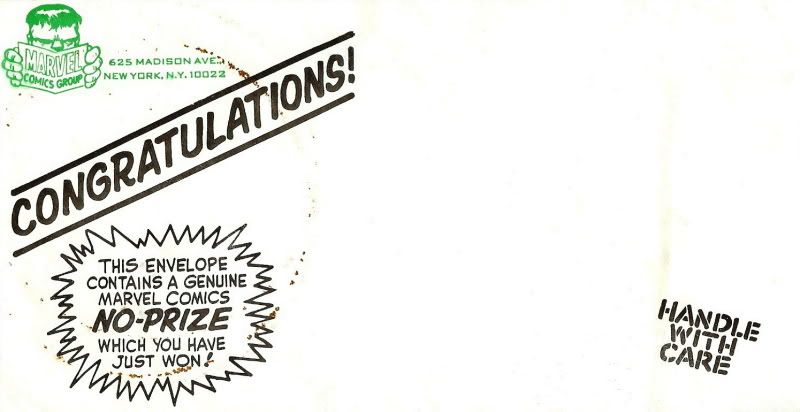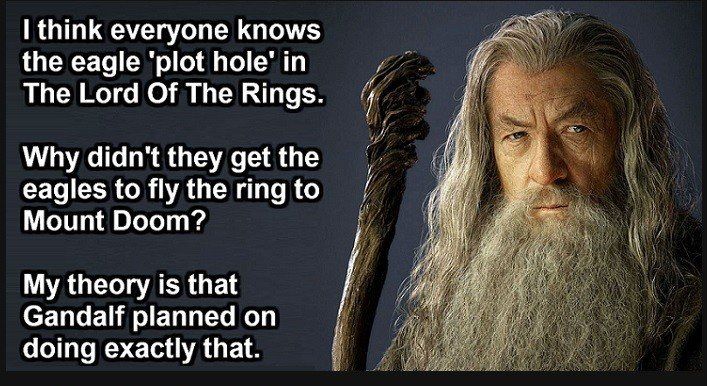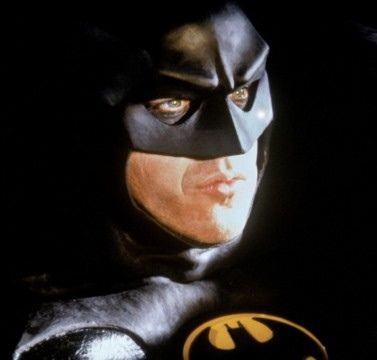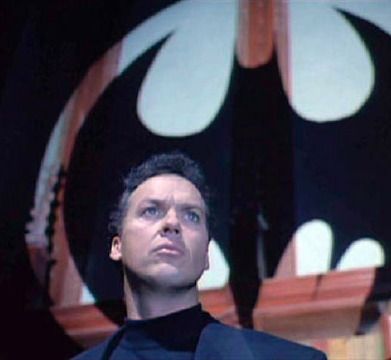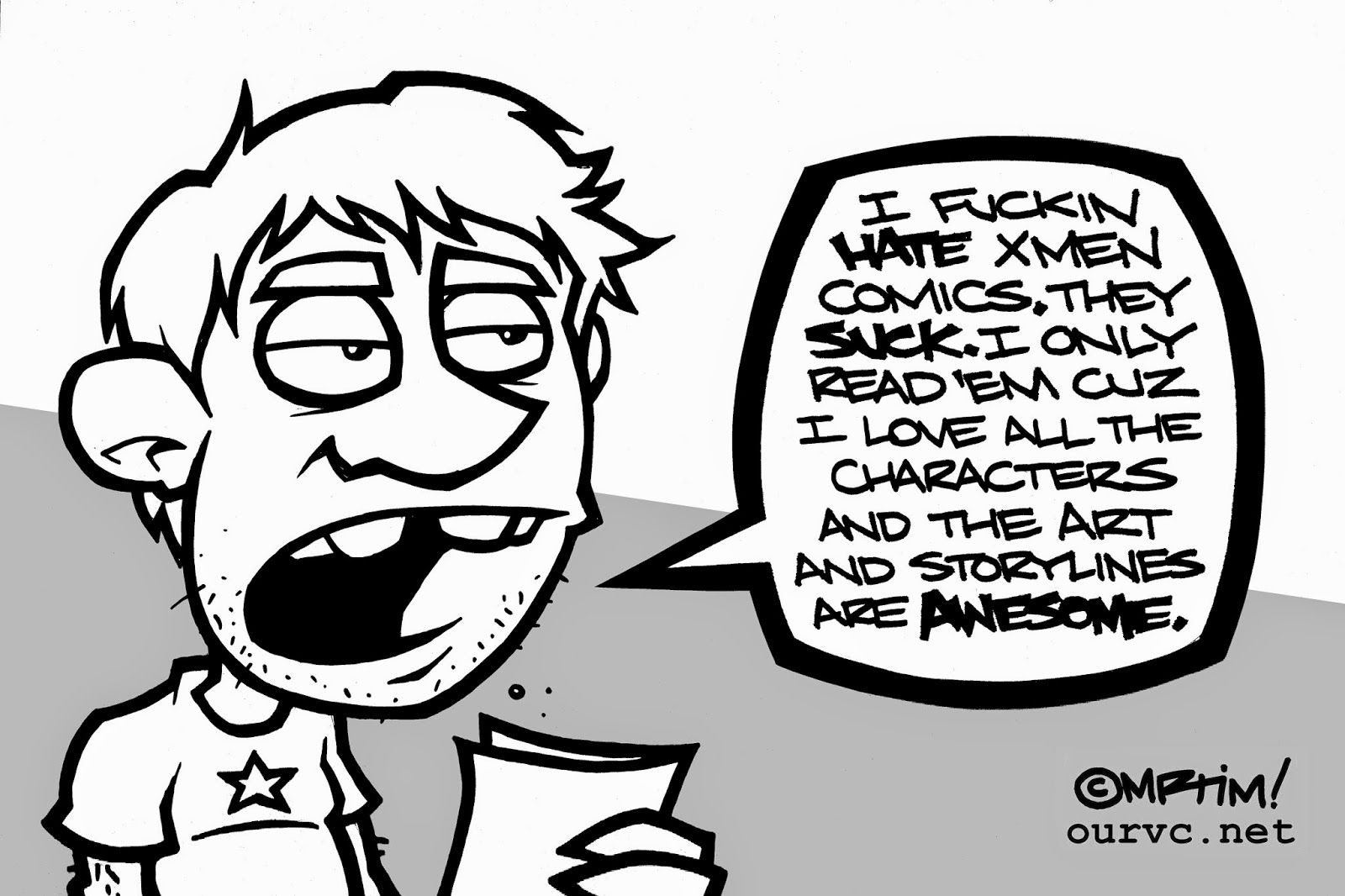My friend Mike Gillis at Radio Vs. The Martians dared me to write this one. So blame him.
It started when we were talking about this particular upcoming project.
We were agreed that it would either be genius or it would be terrible, and we were also certain that somehow, some way, it would involve ripped-shirt Kirk.
Then I confessed, "My first reaction-- well, current, I'm still having it-- was to freeze up in a nerd crisis trying to work out the timeline. Which is sort of pathetic really. I was okay till I got to the part of the synopsis where it mentions Taylor and Nova, and then suddenly my brain went into its ridiculous continuity nerd thing where it goes BUT WAIT-- BUT WAIT, THAT CAN'T-- NOOOO---" I added, "I don't care exactly, but it's a reflex I don't seem to have any control over."
This led to a conversation about involuntary nerd reflexes and an effort to list examples. At some point I speculated that there was probably a column in that idea and Mike said, "You should totally do that." So here we are.
To expand on the idea I started with, let's talk about the compulsive need that many nerdy types have for continuity-mapping. I suppose there might have been medieval fans arguing over whether or not Shakespeare's plays took place in the same universe or exactly how Merlin's power set differed from Morgan Le Fay's, but really this didn't get formalized until the Baker Street Irregulars. So if continuity nerds irritate you, well, it's the fault of Sherlock Holmes fans, because they started it.
Here's what makes it a reflex. Even those fans-- and I'm one of them-- who often proclaim that continuity concerns should not drive a story... nevertheless, we all know instantly when someone gets it wrong. The Wrath of Khan is one of my favorite movies, but when Khan says "I never forget a face," I can't help thinking, He never SAW that face. Chekov never met Khan Noonien Singh. "Space Seed" was a first-season episode and Chekov joined the show in Star Trek's second season.
I don't condemn the movie over it, I know it's not important, I forgive this minor gaffe and move on.... but every time, there is that mental moment of NO THAT'S WRONG. It's hard-wired, apparently.
Of course, this leads to another fan reflex. The need to point out the mistake.
In comics this began with the letters pages. For those of you too young to remember back when comic books had letter columns, a recurring feature of them was the smug kid that wrote in to point out an editorial mistake. Here's a typical letters page from that era. Of the nine letters printed, six of them are demanding explanations for various plot holes.
DC Comics editors Julius Schwartz and Mort Weisinger were the most frequent targets of these neener-neener gotcha missives, and as a result there were a lot of pre-emptive explanations of things shoe-horned into DC comics back then (as he found himself being enlarged to giant-size, Jimmy Olsen would blurt, "Good thing that my suit is made of expandable fabric!" That kind of thing.) Weisinger eventually published a Superman story filled with "boo-boos" and dared fans to find all of them.
But there was still something adversarial about it, it was always a bit of a duel. (This is probably due to Mort Weisinger's personality-- by all reports, the man had an adversarial approach to everyone he ever met.)
However, Stan Lee over at Marvel had a different notion for dealing with this swarm of youthful pedants that were ready to pounce on any perceived mistake. He hit on the genius idea of enlisting those fans to explain these mistakes with some sort of in-story rationalization and the best explanation got a "no-prize." For a few years there, the winner even got an actual envelope from Marvel filled with.... nothing.
There were a few winners that wrote in after to complain that someone forgot to put the prize in the envelope, since-- despite their eagle-eyed examination of everything else in a given Marvel comic book-- they'd somehow missed the fact that the thing was named a "NO-prize." But most fans got the joke and it became quite a coveted thing to be a winner of this ephemeral honor.
Marvel doesn't give out no-prizes any more. For that matter, letter columns themselves have largely disappeared. But the impulse to find that in-story explanation for a plot hole remains. Just a few days ago this Gandalf thing popped up all over social media.
The explanation itself is really quite clever-- you can find the whole thing here-- but the drive that led to that person not only figuring it out but creating the graphic and putting it up on the internet? That's clearly the work of a fan with a burning need to explain these 'seeming' gaffes and make it all work out. Since this really got formalized in the Marvel comics letter columns of the sixties, let's call this particular involuntary reaction the no-prize compulsion.
Here's one anyone on the comics internet will recognize: instant contempt. It's the default reaction for many of us to... well, anything. Before the thing has ever actually materialized, I mean; it happens the second it's announced. Barry Allen returns as the Flash. Marvel's Superior Spider-Man arc. Ben Affleck is cast as Batman. And this has been going on for decades. (I'm old enough to remember the rage that accompanied the announcement of Michael Keaton as Batman.)
In fact, I remember the rage that has accompanied every single casting announcement for every superhero movie ever. (With one exception; no one ever seemed to mind Patrick Stewart as Professor X.) And pretty much every new casting of James Bond is greeted with disgust, as is each new Doctor Who. It goes beyond movies; in comics especially, the announcement of any new anything is greeted with a dour, "It's gonna suck."
The weird part is that I can't figure out where this comes from, because the flip side of this is that fans will forgive anything, a compulsion that seems to go hand-in-hand with the contempt. Star Trek: The Next Generation was a pretty terrible show for its first couple of seasons, with episodes crippled by arbitrary decrees from the producers and incoherent plotting. But we all hung in there with it and persuaded ourselves that it was almost good, there were good parts, it would get better. Well, it took two and a half years, and eventually, yeah, they pulled it out. But nerd forgiveness is what kept that show on the air the first two seasons, because normal people don't do that. Usually, when a viewer decides a series is bad, they don't argue that it has potential and come back week after week anyway. For years.
Only fans do this. Comics, TV, movies, doesn't matter. We can't help ourselves. The wonderful webcomic Our Valued Customers sums it up beautifully with this actual quote:
(By the way, there is now a trade collection of Our Valued Customers with a lot of never-before-seen material that will leave you helpless with laughter; you can find it on Amazon for a very reasonable price.)
But the point is, even if we hate it, we can't walk away. We have to know what's going on. The need to know seems to be hardwired into fan DNA right along with the contempt, which may explain why so many of us are so crabby all the time.
Understand, when I say these things, I don't exclude myself. I bought Batman comics month in and month out for over four decades, and when I finally owned up to the fact that it was absurd to keep spending the money on something I didn't enjoy any longer and it wasn't like I didn't have a houseful of the things already, I still felt ridiculously sad over it. But I resolved then, and I have kept to it, that I'm not going to buy books or go to movies any more that I know going in that I probably will not enjoy. Everyone in the world seems to love Scott Snyder's take on Batman and good for him on doing so well with it. But it's just not for me. Likewise I probably won't be going to see Batman vs. Superman and it's got nothing to do with Ben Affleck: I just don't have any interest in a film building on the version of Superman from Man of Steel. And so on. (I should add that this is not 'instant contempt' as described above-- I read Snyder's Batman faithfully up through Night of the Owls and I saw Man of Steel, the Dark Knight trilogy, and Watchmen before making up my mind about Christopher Nolan and Zack Snyder.)
But I should also add that it's going to be difficult to skip the new stuff. The itch to know is going to be there despite the common-sense certainty that there's no reason in the world to expect that Batman vs. Superman will make an abrupt left turn into something I'll like a lot.
And that applies to all the reactions I've talked about. Continuity mapping, relentlessly pointing out errors (and then devising fixes for them), constantly skeptical of new things but nevertheless driven to investigate all of them... absolutely, I've experienced every one of those compulsions, reflexes, whatever you want to call them, and often behaved foolishly as a result. I'll own up.
What I'm learning is that I may have involuntary fan reactions like these and others, but I don't have to be ruled by them. I can shake them off and approach my hobbies rationally. Just because I observe some sort of comics-related phenomenon doesn't mean that I have to compulsively pontificate about it and categorize it and overthink it and...
...uh, that is...
....Oh, hell.
Look, Rome wasn't built in a day, okay? I'm getting better about this stuff. I cling to that.
See you next week.

